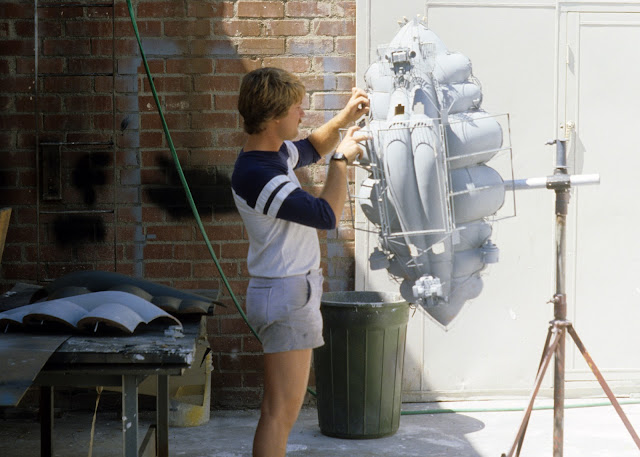The original Bladerunner came out in 1982. I was 14 years old at the time. It was a world where Star Wars had blown away expectations for box office receipts a few years back. Alien had been a big success. And E.T. was the current darling.

And then Bladerunner was released. I was too young to get into the R-rated movie. My mom bought tickets for me and a friend. Maplewood Mall Cinemas. It doesn't exist anymore. I don't recall having any preconceptions about what the movie was about. I knew Harrison Ford was in it and it was science fiction. Good enough for a 14-year old nerdy kid.
I can recall sitting down to watch the film. It opened with some text to describe replicants and bladerunners and 'retirement'. And then that iconic opening happened and for the first time in my life I was really somewhere else. I was no longer in that movie theater. I was in Los Angeles in 2019. What unfolded before me was an utter spectacle. The movie closed with the cheesy alternate ending (Deckard and Rachel driving through a forest which was footage filmed by Kubrick for The Shining). And I was sold. This was the most remarkable film I'd ever seen. An amazing combination of music, special effects, story, philosophy, camera work, editing, special effects, acting, casting, costume design, set design, set location, etc. It all worked towards a cohesive whole.

I had my mom buy tickets the next weekend for just myself. And the following week as well. She looked at me oddly the third time. "You sure you don't want to invite a friend?" I didn't. I didn't want to be interrupted.
What was most surprising about this time though was the overall reaction to the movie. I watched Siskel and Ebert utterly rip the movie apart. Another review described it as Blade Crawler due to its slow pace. People complained about too many special effects. And most remarkably one critic complained about it's lack of story development in 'human terms'. I read an article where Bono criticized the music for being to electronic. I saw an Academy Awards ceremony hand the best special effects to E.T.
What?
Did I not see the same movie that anyone else saw? The movie shut down after a few weeks. I was bewildered by the lack of appreciation for the film. And at that time there was no internet. There was no way to find others who like the film. To my knowledge I was the only person who liked this movie. It wasn't until the early 90s in grade school that through Usenet I as able to find a small but dedicated group of people who had a deep pervasive fascination for the movie.
35 years later....
Bladerunner 2049 hits theaters. October 3, 2017 with a broader release October 6, 2017
I had steeled myself for this release. First of all why the fuck were they making a sequel. There was no need for it. It was going to sully the original as all sequels do.
And then I heard Ryan Gosling would star. Harrison Ford would star. Okay. Denis Villeneuve would direct. Okay. Fancher would be back to write it. Hmm. Okay that's good. Johan Johannsen would do the music (ultimately Zimmer and Wallfisch did the score). Okay. Okay I can work with that. Roger Deakins would run the cameras.

Okay. There isn't much more you could do to make this movie a success. Frankly. I mean this is the line up you want.
Still. I did not watch the 3 shorts that served as backstory. I did not watch a single trailer. I didn't want to have thoughts about what this movie was before going in.
I had one desire.
And that was that the movie would do the same thing that Bladerunner did. Transport me away and put a hook into my brain that I couldn't get out.
And so this last Sunday I finally saw it.
After it was over and I walked out I had a different feeling compared to the first one. And a similar feeling.

The different feeling is that Bladerunner 2049 is a harsh movie. It's the equivalent of brutalist architecture. It is an exhausting movie. Emotionally exhausting. Perplexing. Dizzying. Confusing. Disorienting. You don't feel good after BR2049. It's not the feel good hit of the summer. You feel lonely and cold and beaten down.
But there is also a similar feeling. A feeling of 'what on earth did I just see'. It's new and unique and unlike anything I've seen before. It doesn't really even have much of the original movie in it. Characters and themes and history. But this really is its own unique entity. And again it has unified all the aspects of the movie into a cohesive whole. And like the original it bears multiple viewings and it has deep deep secrets that only someone willing to dig will find. Just the name of the lead protagonist has upwards of 6 theories about what his name means. All of which could be true.
And just like 35 years ago. The movie is falling flat. It's done okay at the box office but it has disappointed many. And some vehemently dislike the movie.
But I can assure you this movie will be talked about 35 year from now just like the original.












